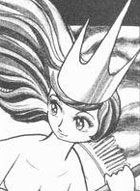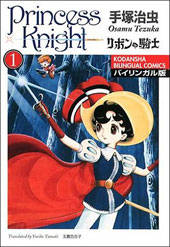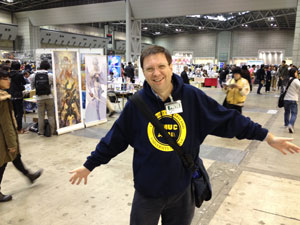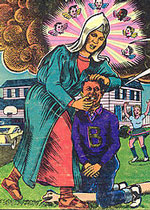By Kory Cerjak
Title: Apollo’s Song
Author: Osamu Tezuka
Publisher: Vertical
 Osamu Tezuka: the man, the legend, the God of Manga and the Godfather of Anime. Born in 1928 in Toyonaka, Tezuka is perhaps the most well-known figure in the manga/anime cultural pantheon. I’ll skip some of the finer details and move to 1946. In 1946, Tezuka was just graduating from medical school and had to make a decision: medicine or comics. He loved both fields, but loved one just a little more. He got his degree, but ultimately decided to pursue comics. In 1952, Astro Boy began its syndication in Shonen magazine. The rest, as they say, is history.
Osamu Tezuka: the man, the legend, the God of Manga and the Godfather of Anime. Born in 1928 in Toyonaka, Tezuka is perhaps the most well-known figure in the manga/anime cultural pantheon. I’ll skip some of the finer details and move to 1946. In 1946, Tezuka was just graduating from medical school and had to make a decision: medicine or comics. He loved both fields, but loved one just a little more. He got his degree, but ultimately decided to pursue comics. In 1952, Astro Boy began its syndication in Shonen magazine. The rest, as they say, is history.
Apollo’s Song opens with an amazing visual metaphor of 500,000,000 people all clambering to become the king to the one queen. The metaphor ends up being of a sperm and eggs, and is used really effectively to represent humankind as a whole, in the sense that only one out of 500,000,000 people will be that special one. But it’s not just Continue reading Tezuka’s “Apollo’s Song” explores love, with stunning visuals
 Sortafellas, a comic submitted to us by Ed M., is set on the mean streets of 1970s New York; a police “bag man” goes to “Junkie Central” to pick up bribe money for his superiors. Having seen only 10 pages, Mulele & Tim aren’t quite sure where it’s going, but would like to see more!
Sortafellas, a comic submitted to us by Ed M., is set on the mean streets of 1970s New York; a police “bag man” goes to “Junkie Central” to pick up bribe money for his superiors. Having seen only 10 pages, Mulele & Tim aren’t quite sure where it’s going, but would like to see more!
 Attack on Titan is, as I know it, an anime that took the (anime) world by storm upon its release on April 6 of 2013. Newly formed Wit Studios (created by former members of Production I.G) took up the task (with the help of I.G) to make what has the potential to be the biggest title that the US anime market has seen since Fullmetal Alchemist hit the scene in 2001 (manga) and 2003 (anime). Kodansha has said on tumblr and Twitter that the numbers for the manga have gone up and up and up and they’re just riding the waves of success until—or should I say if—it slows down.
Attack on Titan is, as I know it, an anime that took the (anime) world by storm upon its release on April 6 of 2013. Newly formed Wit Studios (created by former members of Production I.G) took up the task (with the help of I.G) to make what has the potential to be the biggest title that the US anime market has seen since Fullmetal Alchemist hit the scene in 2001 (manga) and 2003 (anime). Kodansha has said on tumblr and Twitter that the numbers for the manga have gone up and up and up and they’re just riding the waves of success until—or should I say if—it slows down.





 As it’s widely regarded as one of the best comic book series of all time, Dana and Kumar try their best to rekindle their love for Neil Gaiman’s SANDMAN nearly twenty years after its conclusion, only to find the plotting leaden, the art inconsistent, and the world-building frustrating. Has time stripped the series of its lustre, or are these two jerks just too old for it?
As it’s widely regarded as one of the best comic book series of all time, Dana and Kumar try their best to rekindle their love for Neil Gaiman’s SANDMAN nearly twenty years after its conclusion, only to find the plotting leaden, the art inconsistent, and the world-building frustrating. Has time stripped the series of its lustre, or are these two jerks just too old for it?